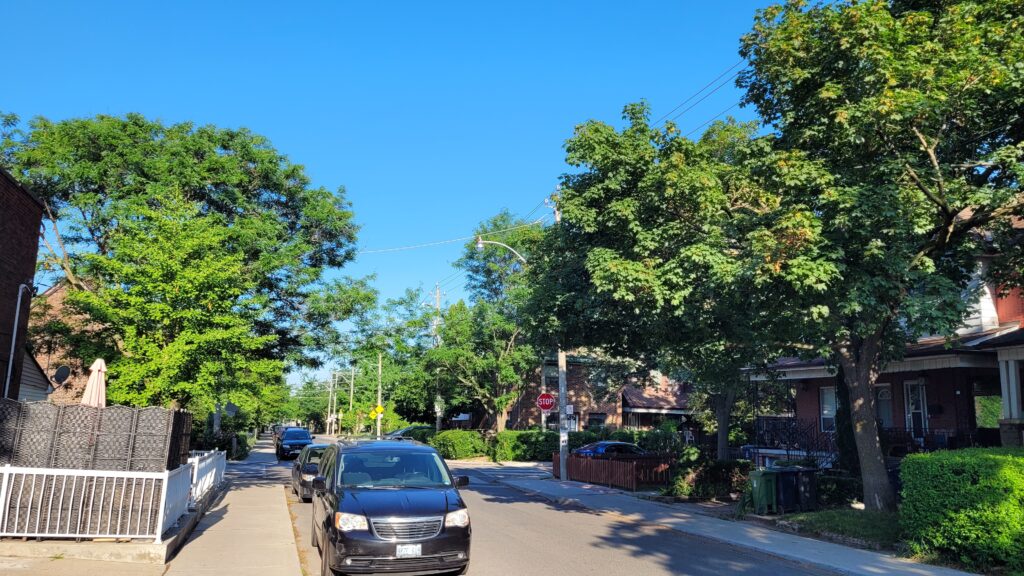
It’s unfortunate that, at times, a landlord does not respond to a prospective landlord regarding their tenant’s rental application. In a highly competitive rental market like Toronto’s, a straightforward verification with your current landlord could be the sole factor distinguishing you from the next best option for your prospective landlord. However, it’s important to note that landlords are not legally obligated to respond to inquiries.
Before searching, try to find out whether your landlord will provide a referral
The reality is that a landlord’s recommendation or verification plays a major role in the Toronto rental puzzle. It can be the secret sauce that can elevate you from a mere rental seeker to a coveted tenant. Your search strategy will likely change if you discover that you don’t have that option. It’s wise to be aware of this possibility before you begin your search.
If you’re moving at the landlord’s initiative or because of a disagreement, you’re in an excellent position to ask for a positive recommendation. To speed up the moving, your landlord will have a compelling incentive to help you move forward. In addition, they will likely raise the unit’s rent after you leave.
If you’re moving out on your own, your landlord still has an incentive to help you secure a new place to live so they can raise rent.
Regardless of your situation with your current landlord, especially in the case of a disagreement, it is advisable to negotiate to secure a referral.
However, it’s worth noting that some landlords may still be unresponsive.
What if my landlord is unresponsive?
If your current landlord is unresponsive to a prospective landlord, consider:
– Communicating directly with your current landlord to understand the reason for the lack of response.
– Providing consent for your current landlord to share necessary information with the prospective landlord.
Be aware of your rights as a tenant and ensure that any shared information complies with privacy laws and regulations.
Landlords are not obligated to respond
Like any other type of referral, landlords are not legally required to give references for their current or former tenants. This is a discretionary decision, and landlords may choose not to provide references for various reasons.
If a landlord decides to provide a reference, they should provide truthful information. However, this doesn’t mean the reference must be positive. Landlords may share information about late rent payments, property damage, or any other issues they have experienced with the tenant.
Why my landlord is unresponsive
Landlords usually are cautious when sharing information about current or former tenants, mostly because of privacy concerns. In Canada, there are rules about what landlords can say about a tenant, and many want to respect their tenants’ privacy by not giving out personal details without a clear nod.
Worries about tenants retaliating can also make landlords reluctant to give out bad references. Some tenants may not take it well and may even resort to legal action if they think a not-so-great reference hurts their chances of getting an apartment.
Then you have some landlords who do not give references at all, no matter what a tenant’s rental history looks like. It’s all about avoiding potential problems—they’re afraid of getting things wrong or giving out sensitive information. So, they stick to a no-reference policy to keep things simple and avoid issues.
How do I strengthen my application without a landlord referral?
The absence of a reference from a previous landlord doesn’t necessarily mean negative information about a tenant. However, it’s common for prospective landlords to request references as part of their tenant screening process to assess a tenant’s rental history, reliability, and behaviour.
Tenants may consider alternative ways to strengthen their rental applications, such as providing proof of income, a rental history report, or references from employers or personal contacts. Each landlord may have different criteria for evaluating potential tenants, and the lack of a landlord reference may not be a significant factor for all property owners.
However, you may still want to strengthen your application, so here are some ideas:
Ask for a rent payment receipt: According to the Residential Tenancies Act, a landlord must provide a tenant or former tenant with a receipt for payment of rent, security deposit, arrears of rent, or any other amount paid to the landlord, free of charge, upon request. Alternatively, you can send a prospective landlord a bank statement showing all of your rent payments.
Offer to pay rent in advance: If financially feasible, offer to pay a few months of rent in advance. This can demonstrate your financial stability and commitment.
Ask other previous landlords about the reference
Inquire with previous landlords about the kind of reference they would provide. Ten years of consistent and timely rent payments could work in the tenant’s favour and make a positive impression on a landlord.
Obtaining reference letters from multiple landlords is advisable if one doesn’t respond or provide a reference. Having one unresponsive landlord out of four is not as detrimental as having one out of one. Consider larger rental companies
Not everyone requires a landlord referral, so you may want to target these landlords in your search. Consider renting from larger rental companies, as they may be less risk-averse and more focused on financial stability and creditworthiness.
Ultimately, there’s a limit to what you can do in this situation. After exhausting all available options, the decision to proceed with your application rests with the potential landlord.
Leave a Reply